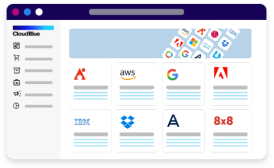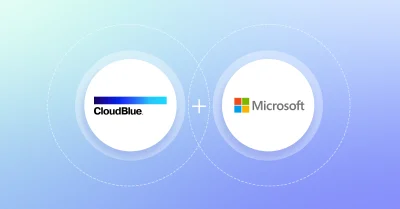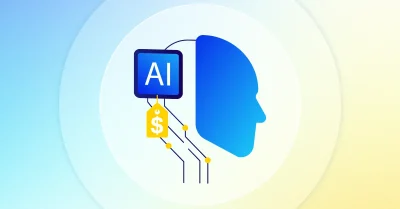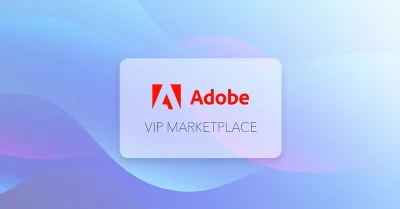We’ve seen many industries forced to amp up their digital transformation during the pandemic, and software development is no exception. The rising popularity of low-code software, which relies on app building via highly visual, drag-and-drop blocks instead of standard coding, is challenging traditional software development methods.
Software vendors are particularly affected, as more customers demand faster app development that can be done in-house. Expeditious app building decreases go-to-market timelines and low-code also lessens customers’ reliance on developer talent that is becoming increasingly expensive and hard to find.
The advent of low-code platforms foreshadows a coming disruption in the industry as more companies start looking beyond traditional software sellers for all their third-party coding or IT help. Instead, companies are insisting on cheaper, lower-touch alternatives. In fact, overall spending on the low-code industry is expected to reach $21.2 billion by 2022, according to Forrester.
During the COVID-19 pandemic, we saw countless cases of businesses and organizations needing to rapidly increase their digital capabilities to cater to customers and employees working from home. Customers will continue to demand faster, simpler solutions provided by low-code, which means that the disruption of software sales by low-code solutions is far from over.
Companies want simplified software solutions
Low-code software’s main advantage comes from bringing self-service development to its users. Through a visual-based model that relies on building blocks instead of coding language, app building becomes more accessible to non-IT professionals. This is certainly having an impact on software sellers as fewer companies need to outsource the app creation process to software developers.
In fact, nearly 60% of custom apps are now built by non-IT teams, according to information gathered by ImpactMyBiz. A third of those apps are being built by employees with no technical coding experience, indicating that lay people are becoming increasingly dependent on app building, thanks to low-coding solutions.
For software sellers and providers, this means they’ll have to adapt by simplifying their solutions to allow for greater app customization. Large software companies like Microsoft and Oracle will be expected to continue to transition more of their efforts to low-code development to keep their sales up.
A Forrester report last year noted that while the Microsoft Power Platform suite was still by far the most sought-after vendor for low-code, it has some ground to make up in terms of simplicity since the app-building requirements can be more complex than those of other competitors on the market.
The wave of low-code popularity will only get bigger, as two-thirds of all app development will be done via low-code development within the next five years, according to Gartner. Now, emerging software companies that prioritize low-code like Appian, Salesforce and Mendix are making big splashes in the market while promising simpler solutions than the normal commercial-off-the-shelf (COTS) software.
Increased demand for quicker app delivery
When compared to low-code, traditional coding methods can take too long to turn around a product. The vast majority of low-code developers can create apps in less than three months, a much shorter timeframe than traditionally coded apps. For companies in highly competitive landscapes, being first to market can be a game changer for their business.
Because of this, we expect that those selling software solutions and the companies purchasing them are going to rely more on low-code development to speed up delivery times.
The pressure will be on software sellers, who will be expected to have much shorter development times going forward as low-code continues to become more prevalent. For the sake of vendors, it’s also proven that this penchant for speed and flexibility makes customers happier.
For its part, Mendix has found success selling to customers who see a dramatic difference in cutting down the time of their software release cycles, which is another reason low-code is disrupting software sales. A study commissioned by the low-code software developer concluded that its customers increased revenue by $3 million because of shorter delivery times.
Conventional coders and software sellers won’t go extinct as they still serve a range of desired purposes, but low-code can make the software development process up to 10 times faster. Fueled by an incentive to cut delivery times from months to mere days, companies are choosing low-code solutions to get their apps built faster.
A higher priority on automated governance and security
With increased speed and simplicity also come risks. Low-code effectively decentralizes the app development process, putting development capabilities in the hands of business users with little IT background. This can have disastrous effects.
Forrester analyst John Rymer shared an alarming account of employees at an insurance company generating over 16,000 low-code apps that ultimately fell into the hands of the IT department to manage.
In order for low-code to work, there must be some form of governance to set parameters and security protocols. Think of governance as the bumper rails on a lane at the bowling alley—they make sure everything stays on track. Increasingly, customers are asking for automated governance solutions for low-code development to serve as guardrails for their employees.
For its part, Microsoft is rapidly investing in more automation, including this year’s acquisition of a robotics process automation (RBA) company to give more options within its Power Automate service. Microsoft says that more than 350,000 organizations are now using the service to automate business processes while simultaneously protecting company systems from security breaches.
Vendors should increasingly offer automated governance solutions to help protect their customers from shadow IT horror stories that can crop up from low-code turning every employee into a developer. They would also be wise to offer basic security protocol training to customers who purchase low-code platforms in order to calm any anxieties.
Embracing change to sharpen your competitive edge
The rise of low-code app development will provide businesses with new opportunities to simplify and accelerate app delivery, giving them a competitive edge against rivals that use more traditional app development. It will also generate new security and governance risks, as non-IT professionals play an increasingly important role in the development of technology systems for companies.
Software sellers must embrace low-code in order to stay competitive, providing their customers with the appropriate tools and knowledge to keep their systems running safely, while also decreasing their go-to-market time and development costs.
At CloudBlue, we are fully embracing the low-code and no-code revolution. CloudBlue, our channel management platform that supports omni-product distribution, has code-free integrations to help software vendors more easily sell their products across different cloud marketplaces and channel partners.
To learn more about CloudBlue and other solutions, contact us at together@cloudblue.com.













